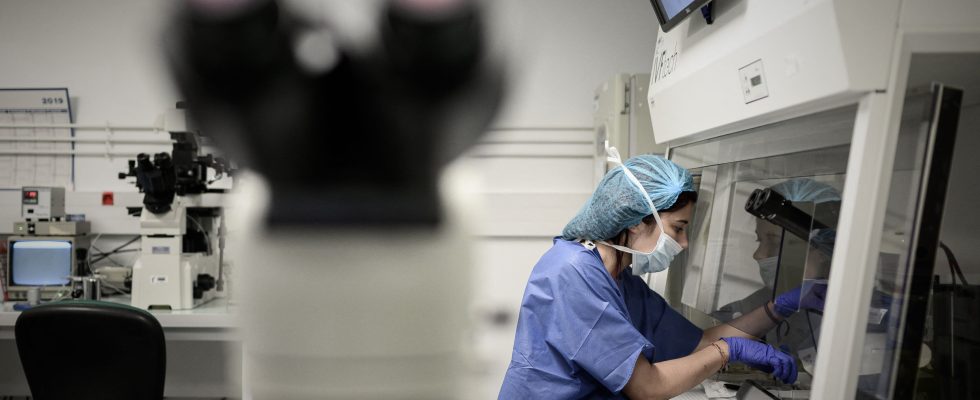A law victim of its success? Requests for medically assisted procreation (MAP) with gamete donation are still progressing, as are waiting times, the Biomedicine Agency pointed out on Thursday. Thus, requests for first consultation for medically assisted procreation (AMP or PMA) from couples of women and single women jumped by 25%, to 7,216 requests, between the second half of 2022 and the first half of 2022. 2023, according to the agency.
The latter identified in total, at the end of June, nearly 30,000 requests from these new audiences, made since the entry into force of the bioethics law in August 2021, which gave them access to this procedure. This is “a societal demand that must be taken into account in a sustainable way,” insists Marine Jeantet, director general of the Biomedicine Agency.
An extension of deadlines
Among single women, more than half of applicants are aged 35 to 39, while 7% are between 18 and 29, 18% between 30 and 34 and 18% between 40 and 45. For female couples, the distribution turns out to be “fairly fair”: 29% are between 25 and 29 years old, 29% between 30 and 34 years old and 24% between 35 and 39 years old. Furthermore, with regard to female/male couples, the majority of applicants are between 30 and 39 years old (67%).
At the same time, the average processing time is also increasing. Between the second half of 2022 and the first half of 2023, it goes from 14.4 to 15.8 months for an MPA with sperm donation and from 23 to 23.8 months for an MPA with egg donation. “We have strengthened the resources of the centers, the government has made a financing effort,” assures Marine Jeantet. Among the 5,400 applicants awaiting treatment with sperm donation, there are 41.1% female couples, 40.2% single women and 18.4% heterosexual couples.
If the number of candidates (around 600) for sperm donation remains stable, it remains insufficient “to cope with the massive increase” in requests, estimates the Biomedicine Agency. The number of candidates for egg donation is increasing slightly (506 women in the first half of 2023, compared to 495 in the previous half).
An information campaign to encourage young people and people who have recently become parents to donate gametes has been launched, and will continue until January.
